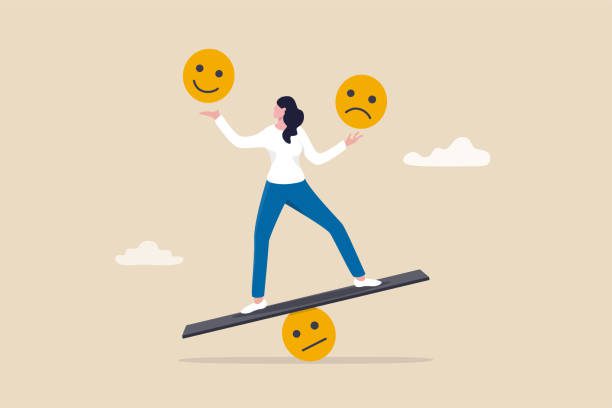⚠️ Medical Disclaimer
Important: This content is for informational and educational purposes only. It should not be used as a substitute for professional medical advice, diagnosis, or treatment. Always consult with a qualified healthcare provider before making changes to your diet, taking supplements, or if you have questions about a medical condition. Never disregard professional medical advice or delay seeking it because of information you read here.
Last Updated on February 22, 2024 by Grace Oluchi
Physical activity is vital for maintaining good health and well-being. It’s long also known that regular exercise can help to prevent chronic diseases such as diabetes, heart disease, and obesity. However, what many people may not be aware of is the beneficial impact that physical activity has on mental health. In this article, we will explore the various ways that regular physical activity can benefit mental health.
Physical Activity.
Physical activity is a great way to reduce stress and anxiety levels. Exercise releases endorphins, which are feel-good chemicals that help to elevate mood and reduce stress levels. This is why many people feel a sense of euphoria after a workout. Additionally, regular exercise can help to reduce the levels of the stress hormone cortisol in the body, which can have a positive impact on mental health.
Health Benefits of Regular Physical Activity on Mental Health.
- To boost self-esteem and confidence levels.
- To improve cognitive function
- To improve sleep quality.
- To promote social interactions and build social support networks.
- To manage symptoms of depression and anxiety.
- To boost self-esteem and confidence levels:


When people engage in regular exercise, they often notice improvements in their physical appearance and fitness levels. This can help to boost self-esteem and confidence levels, which can have a positive impact on mental health. Additionally, physical activity can provide a sense of accomplishment and achievement, which can further boost self-esteem.
- To improve cognitive function:


Regular exercise has shown to improve memory, attention, and other cognitive functions.
This is because exercise increases blood flow to the brain, which can help to improve brain function. Additionally, regular physical activity has shown to reduce the risk of developing cognitive decline and dementia in later life.
- To improve sleep quality:


Poor sleep quality can have a negative impact on mental health, leading to increased levels of stress, anxiety, and depression. Exercise has shown to improve sleep quality, helping people to feel more rested and energized throughout the day.
You May Also Read
- Sleep Your Way to Better Health: Understanding the Importance
- Safeguarding Your Mental Health and Wellness in 2024.
- The effects of stress on the body and how to manage it
- Social Media: How to Use it Safely.
- Sleep: What is Sleep? How Much Sleep is Enough and Health Benefits
- To promote social interaction and build social support networks:


Exercise classes and sports teams provide opportunities for people to interact with others who share similar interests. This can help to reduce feelings of isolation and loneliness, which can have a negative impact on mental health.
- To manage symptoms of depression and anxiety: Exercise has been shown to be as effective as medication in treating mild to moderate depression and anxiety. This is because exercise helps to increase the levels of neurotransmitters such as serotonin and dopamine, which are associated with improved mood and feelings of well-being.


- To reduce the risk of developing mental health conditions such as depression, anxiety, and bipolar disorder: Studies have shown that people who engage in regular physical activity have a lower risk of developing these conditions compared to those who are inactive.
It is important to note that the benefits of regular physical activity on mental health are not limited to high-intensity workouts. Even low-intensity activities such as walking or gardening can have a positive impact on mental health. The key is to engage in physical activity regularly, ideally for at least 30 minutes per day.
The Key Takeaway.
Regular physical activity has numerous benefits for mental health. It can help to reduce stress and anxiety levels, boost self-esteem and confidence, improve cognitive function, promote social interaction, improve sleep quality, manage symptoms of depression and anxiety, and reduce the risk of developing mental health conditions. Therefore, it is important to make it a regular part of your daily routine to reap the many benefits that it has to offer.
How does physical activity impact mental health?
Physical activity has been shown to have numerous benefits for mental health. Regular exercise can help reduce symptoms of depression and anxiety, boost mood, improve self-esteem, and reduce stress.
What types of physical activity are best for mental health?
While any type of physical activity can have benefits for mental health, some types of exercise may be more effective than others. Aerobic exercise, such as running, cycling, or swimming, has shown to have particularly strong benefits.
How much physical activity is needed for mental health benefits?
The amount of physical activity needed to achieve mental health benefits is not entirely clear, but experts generally recommend at least 30 minutes of moderate exercise most days of the week.
How quickly can physical activity improve mental health?
Some benefits of physical activity on mental health can show almost immediately, such as an increase in mood and a reduction in stress. However, it may take several weeks or months of regular exercise to see more substantial improvements, such as a reduction in symptoms of depression or anxiety.
Can physical activity be used as a treatment for mental health conditions?
Physical activity can be an effective treatment for some mental health conditions, particularly mild to moderate depression and anxiety. However, it is not a replacement for professional treatment and should be in use with other therapies.

